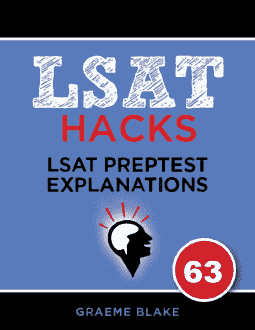This is an explanation for passage 4 of LSAT preptest 63, the June 2011 LSAT – the comparative passage. The passages are about historical objectivity.
This section has paragraph summaries and an analysis of the passage, links to the explanations for the questions are below.
Paragraph Summaries
Passage A
- Historians aim to be objective.
- Objective historians say that facts exist independently of interpretation.
- Objective historians must be neutral, like judges. They must not have outside allegiances.
Passage B
- Objectivity does require self-discipline.
- Objectivity is not neutrality. An objective argument makes a point, but has carefully considered alternate arguments, and rejected them.
- The “powerful argument” is the highest form of objectivity. It is not the same thing as “giving equal time to all sides”.
Analysis
The passages both talk about historical objectivity. It is not quite clear whether the passages disagree.
The first author describes her ideal of objectivity:
- Facts and interpretation are clearly separate.
- The objective historian will abandon theories and facts if they are mistaken.
- Facts exist independently of opinion.
- The objective historian has no biases.
- The objective historian is not an advocate or propagandist.
The second author has a slightly different view. They believe that the objective historian should make an argument. Of course, the objective historian should still avoid bias and self-delusion. But the goal is to prove the truth.
The second author thinks the objective historian should consider all competing theories. But the objective historian should not merely present the theories. They must argue which one is correct.
Now, it’s possible the two authors don’t actually disagree. The first author says that objective historians should be like judges. And judges make judgements. Which is what the second author argues that objective historians should do.
We would need more information to determine whether or not these authors actually disagree, or whether the difference is merely a matter of emphasis. The first author places more emphasis on neutrality, the second author places more emphasis on the fact that historians should judge.
Note: several wrong answers mention changes in history over time, or historians from different time periods. But neither passage mentions how history has changed over time!
In fact, almost all the wrong answers simply don’t occur in either passage. I don’t know how to “explain” that these are wrong: they’re hallucinatory answers.
The solution is to read the passages a second time or skim them quickly, and slow down if you don’t understand. Rereading is much faster than reading – most students can reread a passage in 30 seconds. You’ll remember many more details this way, and dodge hallucinatory answers that describe things that weren’t in the passage.


Leave a Reply